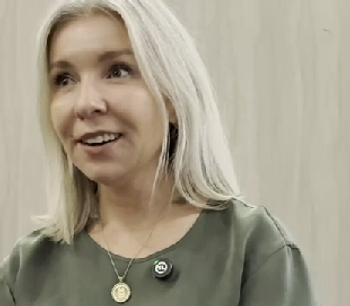
“Our Capes Are Killing Us”: How Do We Support Men’s Mental Health Month?
November is Men's Health Awareness Month.
COMMENTARY
“You’re not going to make me cry…so stop trying.” Peter told me in response to what I thought was a seemingly surface level question about a difficult experience he had. “I’ve looked into the eyes of a man before he died by suicide…and I saw that regret. I never want to feel that. So when those thoughts come, I remember him.”
Peter spent a long career in law enforcement and became accustomed to war. After a while, when every day is filled with pain that is beyond the capacity of the human heart to bear, we have no choice but to become numb. He only realized his anesthetized state after retiring from law enforcement. “I remember one day that I responded to a shooting. As I walked by 2 bodies on the street, I realized I hadn’t eaten in 12 hours and had a tuna sandwich in my hand. Here I was with a sub, as I walked through death. That was not normal. But I thought nothing of it at the time.”
Peter was right; it was in fact not normal. His capacity to feel was trained to be at bay. There is a job to do. The show must go. This is the reality for many men. This reality leads to the staggering statistics that men are 4 times more likely to die by suicide. Men suffer in a seemingly strong silence that is often fatal. It is no wonder that majority of those who die by suicide are men. This November, we can help sound the alarm to change that.
I got a glimpse of this the first time I saw a patient die in the hospital. As the psychiatry intern rotating on the medicine team, we arrived in the morning to discover “Mr Jones” had passed away overnight. He was there for 2 weeks and the team got to know him, his wife, and his family. And now he was gone. What do we do next? Round. There are other patient to treat, codes to attend to, admissions, discharges, and no room to mourn. That also was not normal. All of us in health care felt the magnified version of this when we experienced the collective trauma during COVID-19 of losing multiple patients every single day. I have since treated several clinicians who were surprised to hear that they experienced a war-like trauma that must be processed and treated.
Men are often taught to not be distracted by processing what they witness or experience. It is often challenging to allow a man the space to express the reality of horror he encountered in a way that is comfortable for him. For Peter, he wanted no “fluff” and would often tell me: “Listen, I’m not here for hugs. I’m here because my wife made me. She said I’ve just been way more angry than usual.”
That anger that masks our sadness is often expressed with family members, loved ones, and even coworkers. Peter slowly came to recognize the source of that anger. There was fear beneath it. He feared the helplessness of not being able to protect his loved ones one day. He could not talk about his experiences because most people simply “would not understand” and those who would, are struggling with their own experiences just the same.
We came to Peter on his own terms. Things were not sugar coded, no pleasantries. John Mulaney, a well-known comedian who struggled with substance use and chronicled his experiences in comedy specials, once spoke about a conversation with a doctor he had at rehab. He was intent on leaving and ready to argue his way out. The doctor simply looked at him and said, “John, we both know how this movie ends.” No arguments. No poetic therapeutic lingo; just direct truth that he needed to hear. John describes this ending: “I heard that…and I went right back to my room and finished my rehab.”
Men speak a language that is reachable if we take the time to learn it. Just as we use an interpreter when speaking with a patient whose native tongue is foreign to us, could we allow ourselves to take a moment to translate our knowledge to a language that can penetrate the very fragile armor that men walk into our offices with?
In so doing, perhaps we can help save their own lives… in truly heroic human fashion.
Dr Mirhom is the immediate past president of the New York County Psychiatric Society, an assistant professor of Psychiatry at Columbia University, codirector of the PPF Express Program, and the Chief Wellbeing Officer at Athletes for Hope.
Newsletter
Receive trusted psychiatric news, expert analysis, and clinical insights — subscribe today to support your practice and your patients.







